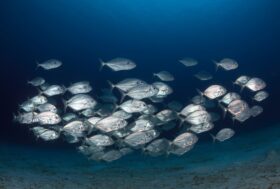Using your library management system to improve digital and information literacy in secondary schools

The need for secondary school students to understand how to research and get the most from the huge array of resources and data available to them is clear to many teachers and librarians. The quantity of information readily available is enormous but it is our job to teach students to find quality information and use it responsibly. This case study will look at how these skills can be taught in the curriculum with the support of the school librarian.
As the librarian at Tonbridge Grammar School (TGS), part of my work has been to collaborate with staff to integrate the teaching of research skills into the school’s curriculum. These skills might otherwise be delivered through library lessons, but we are working to integrate them into the curriculum so that the students are able to experience their practical implementation.
Tonbridge Grammar School is an International Baccalaureate (IB) World School, a selective grammar school that runs the IB Middle Years Programme in Years 7 to 9 and the IB Diploma in Years 12 and 13. IB programmes focus on teaching critical thinking and questioning skills; the programmes run alongside the National Curriculum and concern how we teach, rather than what is taught. There are four programmes for children from two to 19 and, in each one of these, research skills are a fundamental requirement.
Working with such an ethos has helped me to emphasise the importance of information literacy skills and has supported my assertion that they are most accessible to the students when they are integrated into their learning.
Part of our Year 7 induction programme introduces students to research skills, initially through English lessons in which we teach students how to use the library, its catalogue and collection. Once these skills are embedded, we have set the basis for research and can move on to more complex skills. In their first term, the geography department use their unit and assessment to teach some of the skills used for referencing, bibliographies and citations. The end-of-unit assessment requires a bibliography of sources. From this point onwards, bibliographies are an expectation in all assessed work.
Through their English lessons, students are taught to seek information from a range of sources and to begin to evaluate its effectiveness in answering their questions. One of the ways we teach this is by using the ‘Onesearch’ feature of Access-It, our library management software. Oneseach enables students to search across external websites and databases from within the library catalogue. This allows us to guide students, and to collate websites that we feel offer the most appropriate sources of information without prescribing too strictly. It gives students the opportunity to look at the options, many of which are more unusual sources of information, such as the computational search engine Wolfram Alpha (wolframalpha.com) or subject-specific databases such as the IB Design Technology wiki (ruthtrumpold.id.au/destech).
We also use the ‘visual search’ function of the software to collate books from our collection and resources from the internet and display them by subject and unit, in order to guide students’ research and encourage them to think beyond Google. We teach them to consider the authority of the websites they use and their relevance to their research by looking at the authorship, relevance, accuracy and currency of the information they find. While students in other schools might learn these skills through stand-alone library lessons, we have removed this separation so that students experience the practical application of these skills in their own work.
Students are asked to suggest titles to be added to these visual searches based on their class discussions and previous reading, helping them to think about keyword searching and how what they are studying in school can be related to life outside school.
When using Google, we encourage students to develop their digital literacy by using Google’s advanced search features to prompt more detailed interrogation of the internet and get the best from the electronic resources they use. Using the search and filtering features of Access-It on a small collection is a starting point for teaching the students to use advanced searches on databases, to consider Boolean-type logic and to look at keywords and filtering as a means of finding related material that might be relevant to their research.
We view the catalogue as more than simply a list of books – rather, as a guide to research that extends a student’s view of the subjects they are being taught. IB students worldwide are encouraged to look for connections, both across the curriculum and to the world outside school. We anticipate that the breadth of the material collected in the visual search function aids them in this. The aim is to ensure that each unit’s visual search stretches students to access material related to but not directly touching on the unit of study. For example, we will include novels about a subject being studied in science, or geography and history books about the period in which our English texts are set.
To achieve this integration across the school, we have mapped the IB’s suggested research skills across Years 7, 8 and 9 and matched unit plans to those skills. This enables all staff to see what we expect of students in each year. Staff can see when students will be taught the various skills, and therefore when those skills can be expected to be demonstrated in assessed work. We ask students to complete a questionnaire about their ability to carry out research and practise academic honesty at the beginning, and end, of the school year to ensure that we are achieving our goals. This data allows us to fill in any gaps and revise the programme if necessary.
The combination of features offered by Access-It and the school’s IB focus has allowed us to integrate digital information literacy and research skills into our classrooms. This has enabled students to view such skills as fundamental to their academic success and part of them becoming confident, independent learners.










